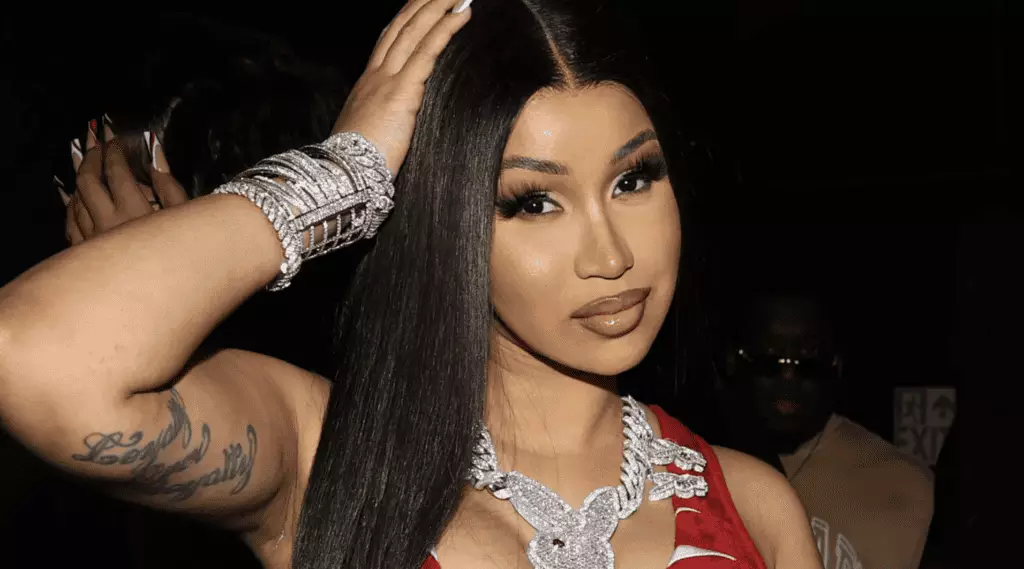On October 7, internationally renowned rapper Cardi B, born Belcalis Marlenis Almanzar, made headlines on her X account by introducing a new meme coin named after her famous song, “WAP.” Accompanied by a picture of her with a cat, the post sparked curiosity and excitement among her dedicated fanbase. In what initially seemed like a whimsical and light-hearted invitation to her followers—asking for guesses on her cat’s name—she later announced that the feline was dubbed “$WAP.” With a wallet address and a brief promotional video, the post quickly turned into a focal point of conversation within the crypto community.
While the rapper’s intention may have been in good cheer, this tweet has sent alarm bells ringing among security experts, casting a shadow over her promotional efforts. The very nature of cryptocurrency, especially meme coins, is fraught with risks, and Cardi B’s foray into this realm has become a public case study in the potential pitfalls of celebrity-endorsed cryptocurrency.
As the crypto community rallied around the $WAP token, soon came warnings from blockchain security firms, including Peckshield, which stated that it appeared Cardi’s account may have been hacked. Such compromises are more common than one might think, particularly for high-profile individuals with vast followings. The alarming implications of these warnings were clear: if the rapper’s account had been compromised, her fans and followers could inadvertently fall victim to a scam.
Despite the urgings of caution from security experts, some on X dismissed these warnings as unfounded. They argued that Cardi B was in control of the promotion, likening it to broader, planned marketing moves typical in the cryptocurrency sphere. This divergence in opinion highlights the ongoing debate concerning the responsibility of public figures in the often-volatile crypto landscape.
Adding more fuel to the fire of skepticism was the discovery made by crypto investigator CryptoRugMunch, who highlighted that a significant number of the wallets holding the $WAP token were newly minted. This raised red flags about the project, particularly in terms of liquidity and capital influx. The practice of creating multiple wallets often serves as a precursor to a “rug pull,” a scam where creators vanish with the assets, leaving investors powerless and holding worthless tokens.
At the time of the $WAP token’s introduction, a liquidity total of approximately $548,000 with a fully diluted valuation of $17.6 million was reported. Yet, even with over 20,000 transactions occurring rapidly, the transaction volume could not entirely assuage the apprehensions surrounding the project.
The complexities surrounding Cardi B’s $WAP meme coin were exacerbated by the involvement of crypto influencer Ansem. His keen promotional language responding to Cardi B’s post—describing it as “CAT SZN”—not only drew attention to the promotion but also contributed to the swirling controversy surrounding influencer credibility in the crypto market. Ansem’s previous disagreements with blockchain investigator ZachXBT about his promotional practices have brought to light the ethical dilemmas tied to celebrity endorsements in the cryptocurrency world.
This interaction also posed a challenging question: when does enthusiastic promotion cross the line into irresponsible advocacy? For every influencer involved in cryptocurrency, there must be an acknowledgment of the risks to their audience. With the volatility of the crypto market, mixed messages can lead to disastrous financial outcomes for unsuspecting investors.
Cardi B’s attempt to dive into the cryptocurrency space with her $WAP meme coin serves as a cautionary tale. While her actions may possess a sense of fun and novelty, the intricacies surrounding digital currencies offer shadowy undertones of risk and deception. The convergence of celebrity influence and crypto familiarity requires careful consideration, as fans often look to their idols for guidance, unwittingly putting themselves at risk. Ultimately, the episode raises essential discussions about accountability, credibility, and the fraught intersection of entertainment and finance in the contemporary digital age. Investors must remain vigilant, informed, and cautious in a field peppered with enticing yet tumultuous opportunities.















